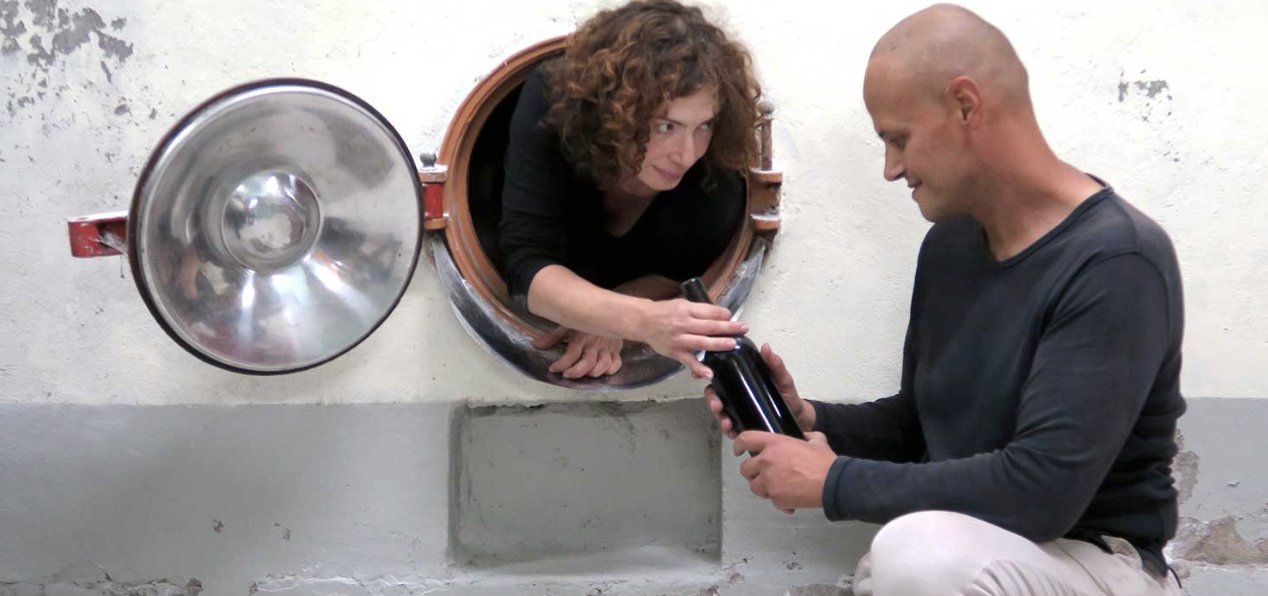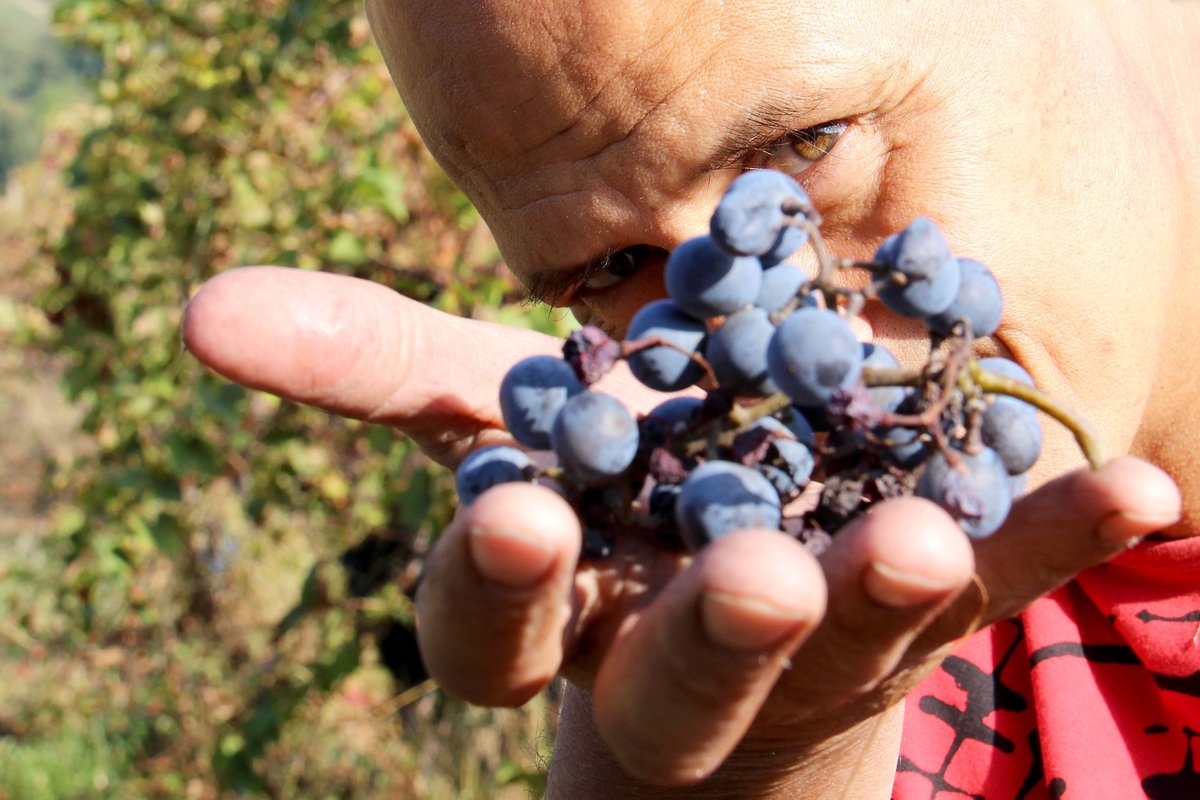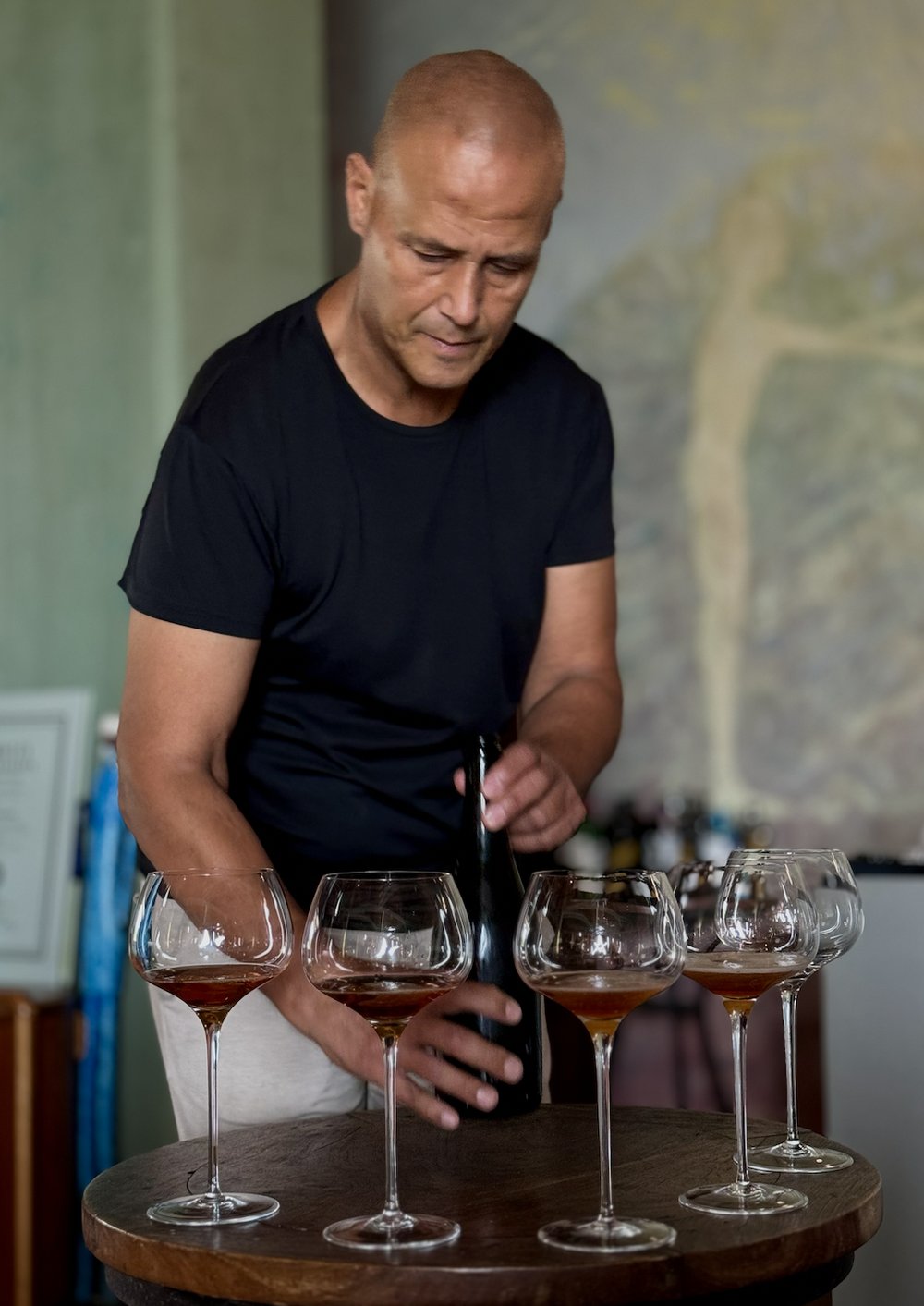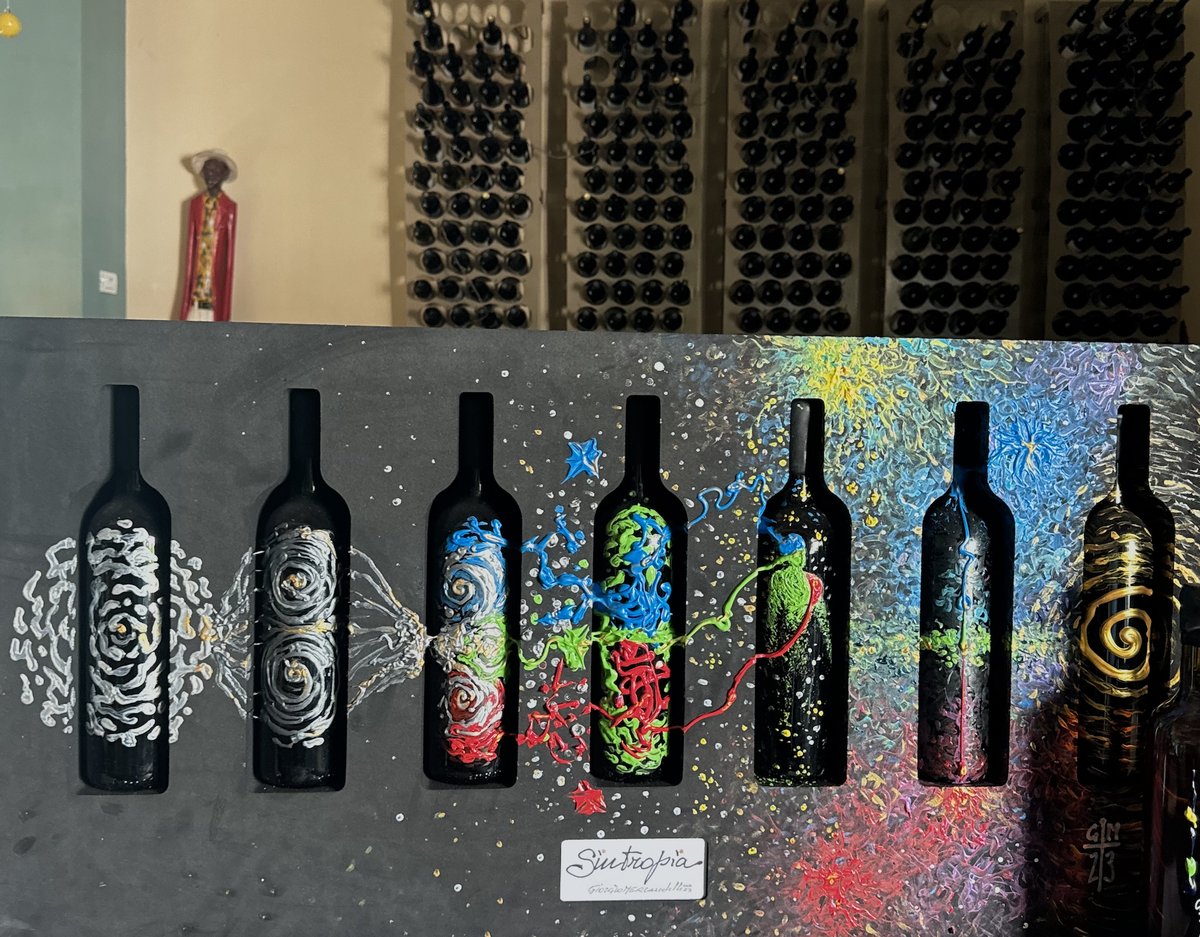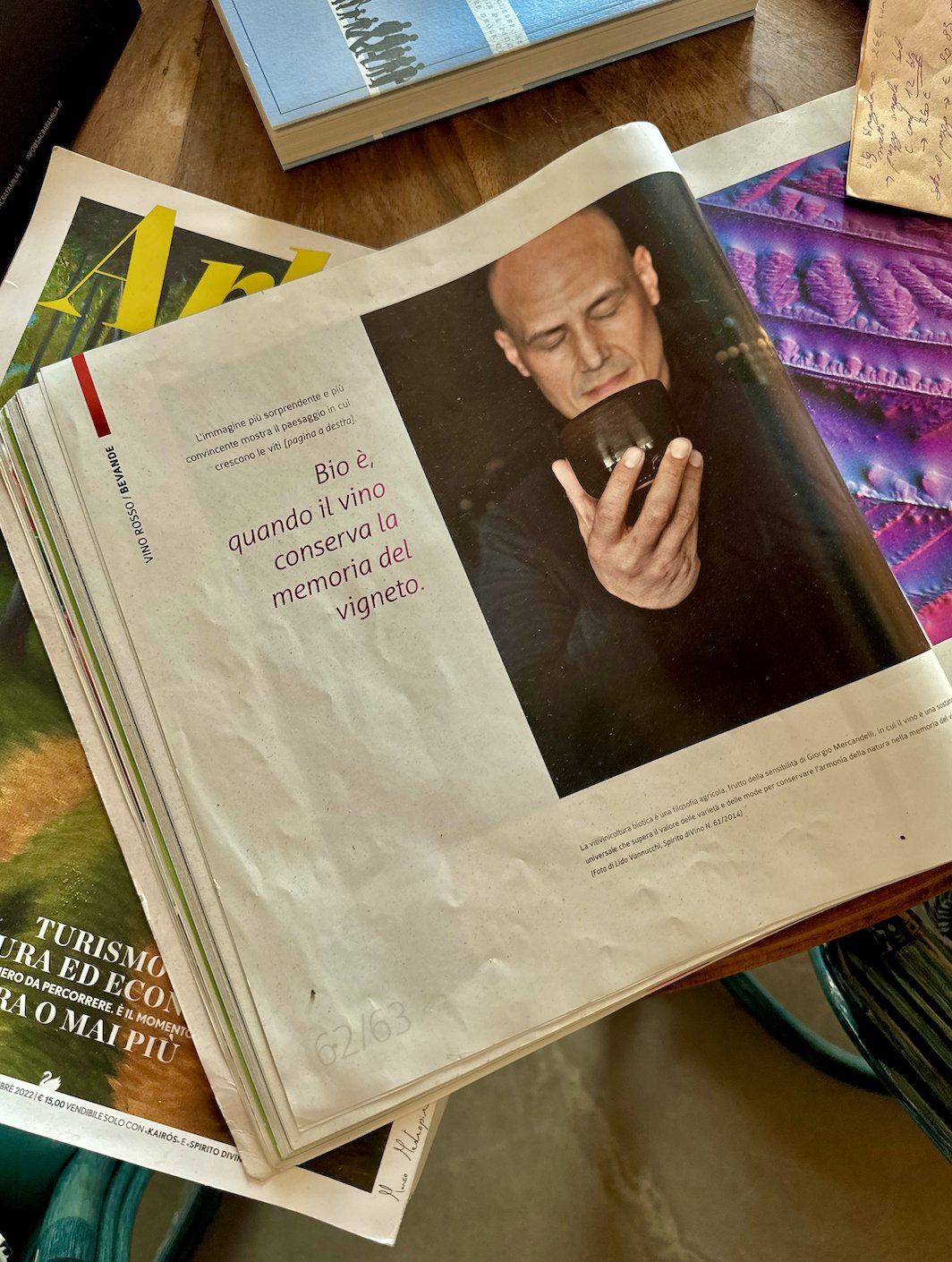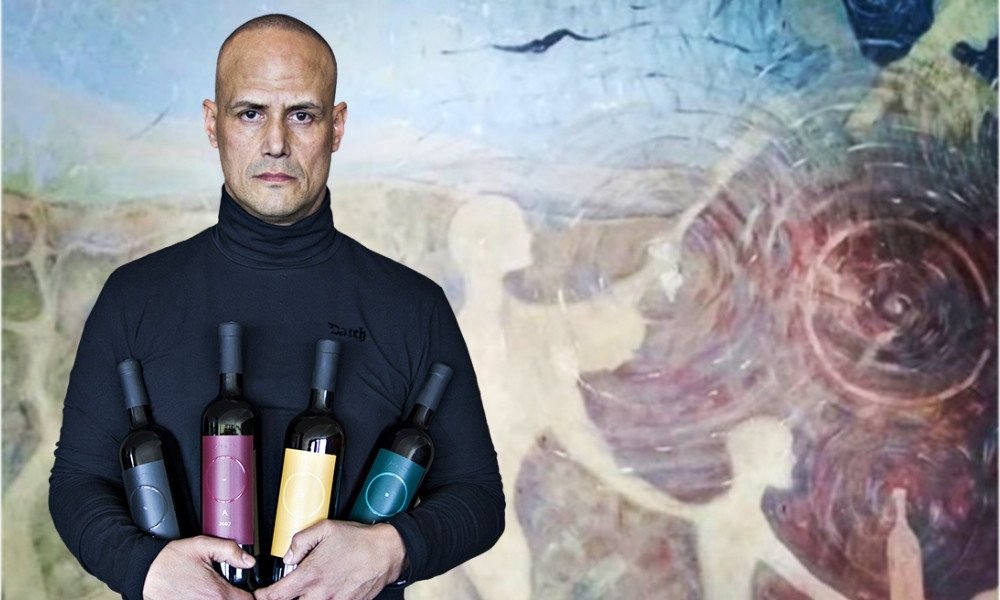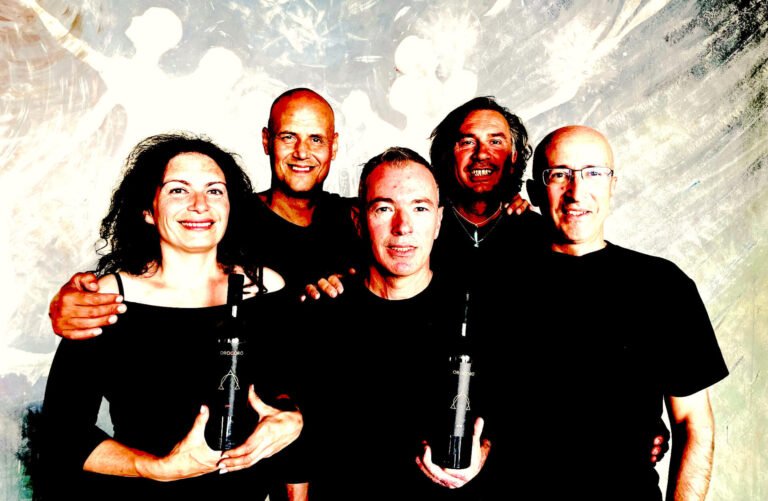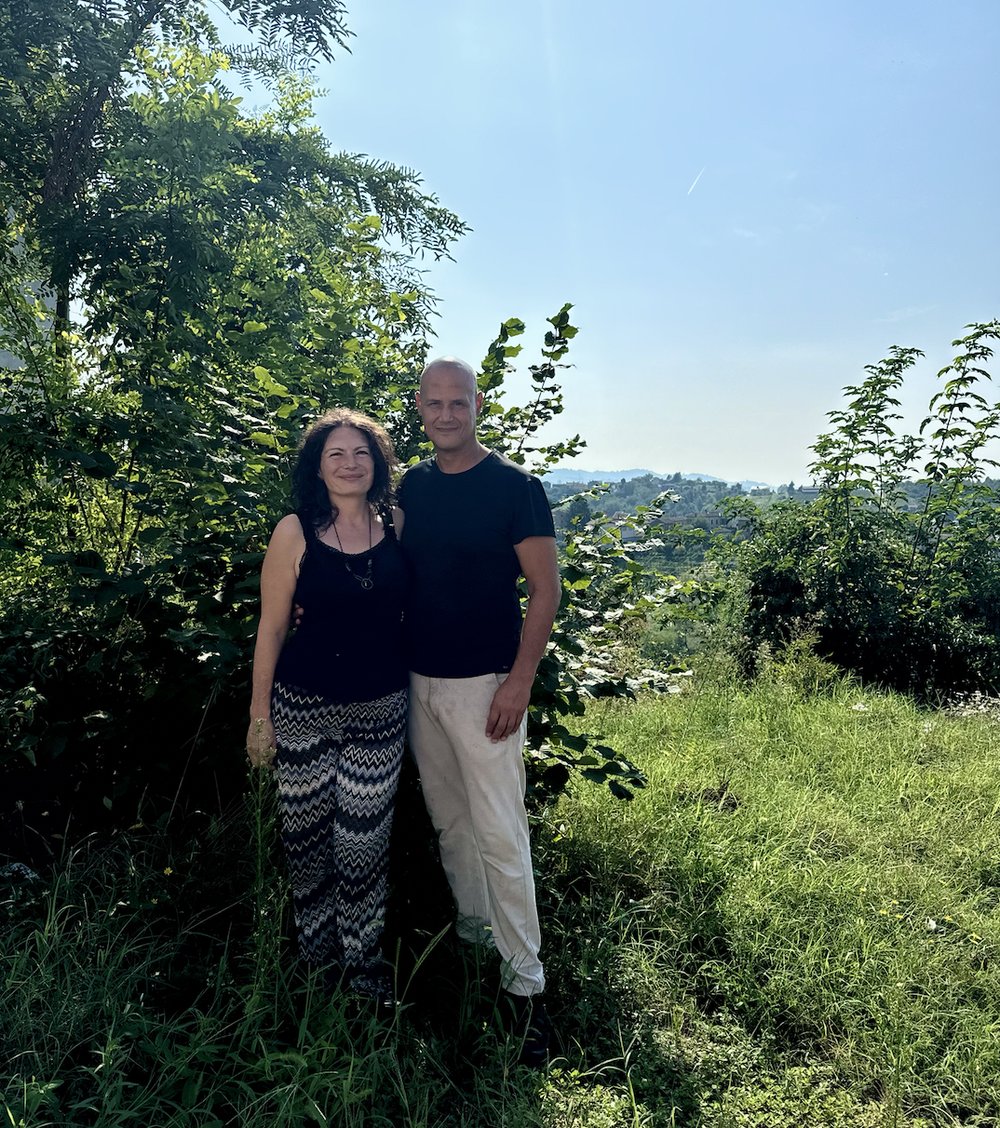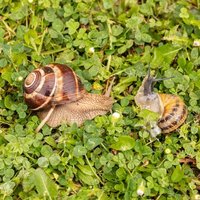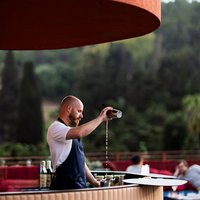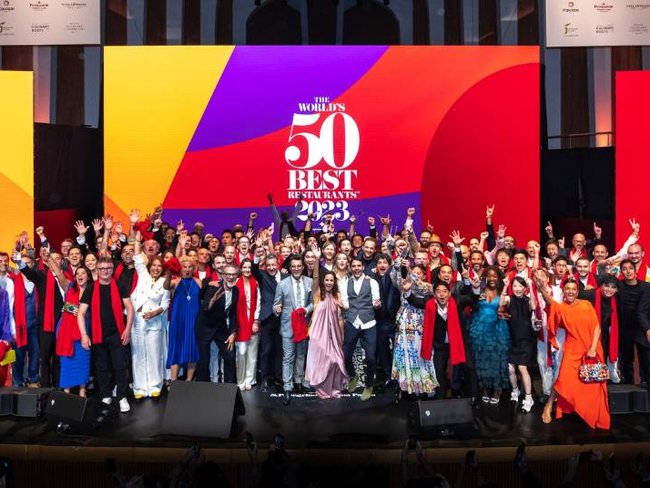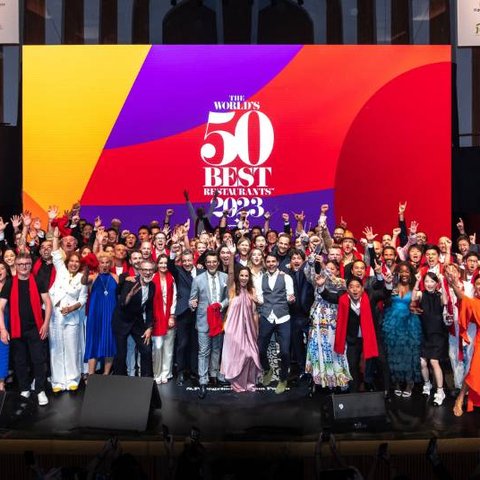Giorgio and Sonia Mercandelli welcomed us warmly to their house-cellar in Canneto Pavese; we discovered this unique reality thanks to Nicola Perullo, professor and writer as well as dear friend of the winemaker-alchemist.
Casa Mercandelli stands as a place outside of time and space, a masterpiece where light dances with the harmony of the spaces, creating an aura of mysticism and serenity. Every corner reflects the rhythm and essence of those who live there, intertwining design and nature in a perfect balance. Here, the dimension of everyday life dissolves and the environment invites contemplation and connection with oneself. A refuge that celebrates elegance and quiet, shaped to nourish the soul and creativity.
We arrived here without too many expectations and prejudices, but with great curiosity for a convivial lunch with revealing implications.
From the very beginning, Giorgio Mercandelli expressed a personal and philosophical vision of wine and life, proposing an interior, rather than exterior, revolution based on a conscious and profound relationship between the vine and life, with the aim of reflecting the absolute value of quality. For him, wine is not a product, but a symbol that connects nature and mankind to the meaning of their existence.
A childhood marked by contact with the world of wine and a comfortable family life characterized by internal conflicts. The turning point in Mercandelli's life occurs with the death of his father, which leads him to a profound reflection on the meaning of life and wine, inspiring him to seek a purity that transcends human limits. Wine becomes for him a tool to bring eternity back into every bottle.
A significant episode occurs in 1995, when he experiences a profound sense of unity with the universe in the family vineyard, from which his idea of a wine that can reflect this experience of awareness and connection with the deepest reality is born.
Mercandelli sees wine as a unique work, a synthesis of harmony between entropy and syntropy, between matter and spirit. Each bottle is an unrepeatable expression of life, a reflection of the present that incorporates the past and projects the future.
“I don’t want wine to reflect my limits, but the life of consciousness,” he explains, underlining how his creation does not follow production logic but an authentic and uncompromising creative path.
“The revolution of taste” represents a philosophy that unites wine, life and human existence in a journey of research into purity and eternity, where wine becomes a metaphor for a personal and collective transformation. Each bottle, unique like every life, tells the story of the vineyard and the experience of those who taste it, creating a profound and transformative connection. For Mercandelli, this is the ultimate mission of his work: to bring into wine a fragment of eternity that unites mankind, nature and consciousness.
How and when did you start producing wine?
When I started producing wine I was about 16 years old. At the time I was studying agriculture and oenology, and with my family we had a small farm; therefore, entering the world of wine was quite natural for me. I started to develop the idea of producing wine because I realized more and more that it was the simplest thing to do since the wine, practically, made itself. So I started experimenting with the first productions, but I was still far from the production philosophy that I follow today.
What is meant by alchemical wine?
The first to define my wine as alchemical was the vice-director of Corriere della Sera, during an interview on the occasion of an award that was given to us as the best winemakers of the year. A reflection that came after explaining to him that for us, wine represents the experience of the life of a vineyard in the same way that it reflects the path of consciousness of a person. Alchemical wine is therefore a very pure substance that expresses the taste of its own experience and not the taste of the fruit, which for us is only a vehicle and a "container" that has nothing to do with the path of immortality of the plant that expresses the wine. In this way, in fact, wine is nothing other than the rebirth of the plant in its own reality but, simply, in a different form. More than wine, we can therefore speak of a pure liquid, which derives from the result of a domain of coherence in the cultivation of the vine in which there are neither fertilizers nor chemical products. Not because we believe that these substances are negative for humanity, but because we want the plant to express in the fruit the taste of its own experience, not the taste of the fruit.
What is the philosophy from which your wines are born inspired?
The philosophy from which my wines are born is deeply linked to my fear of death and to my search to give it a meaning, so as to give a greater meaning also for life. Looking back on my journey, both in life and professionally, there was no specific trigger, but rather the epiphany of a holistic experience that led me to see myself as part of a whole, in which each person reflects a uniqueness that can be expressed through my wines. For this reason, my wines do not follow a conventional production process. Rather, they are born from my vision of the present and of life, where each bunch contains the essence of life itself, reflecting an eternal experience that is not limited by temporal or geographical circumstances. Making wine therefore becomes an art form that expresses life in a unique and unrepeatable way.
What is the production process of your wine and how does it differ and distinguish itself from others?
For us, wine is the life experience of the vineyard, which here is cultivated in a domain of coherence where there are no fertilisers, and in general no chemicals are used. The wine we make is therefore not born from an ordinary production process, because it does not have the systematic characteristics of a process that has first of all a ritual and a purpose consistent with a result. On the contrary, to obtain, let's say, in our sensitivity the taste of this experience, we ferment these pure fruits until they return to the origin, that is, they return to that essence of water that was the same water that flowed like sap in the plants. At this point we cover that same water with the barrels and then after a deep fermentation what will be obtained will be colored water that for seven years remains without taste, aroma and without any other sensorial condition except in the bottle, where that water recognizes the fruit of its own experience as taste. For this reason, the wine as we make it reflects exactly what we are (and the plants are) in the present. This is because we think that at those levels the bunches of grapes possess all the logical contents of life, and are therefore capable of reflecting their life experience in the present. Therefore, wine reflects exactly that clock that has the eternity to fix life in a certain moment, where taste is no longer linked to variety, territory or its transformation but to the taste of an experience. That is, the experience of our existence that through wine is perceived as the only true taste of life.
In Italy, wine has a strong symbolic value, also from the point of view of a spirit of aggregation, in your opinion, what does wine represent? Do you think there could be a change of attitude in relation to the concept of drinking?
Wine represents an experience that amplifies our awareness of the world, giving us back the joy of existence. Even before observing external reality, wine immerses us in a set of elements that precede any concrete form, offering the possibility of being co-creators of our experience. It does not impose mental patterns, but rather dissolves them, stimulating the mind to become the architect of our reality. The vine, in a certain sense, frees the mind from the "grids" on which we are often accustomed to tracing predefined paths. To play this role, however, an intrinsic freedom is necessary, the same that the plant experienced during its growth. Otherwise, the process is reduced to techniques that only serve to produce, rather than express something authentic. Despite this, winemaking offers many extraordinary experiences, and it is not about finding a better or worse wine, but about recognizing that, like people, each wine tells a different story. It is not a question of separating, but of understanding the variety of paths. Even supermarket wine has its symbolic value, but it is up to us to choose which reality we want to live. The beauty that nature offers us through wine is not about judgment, but about appreciating life itself. It is not about telling others how to be better, but about rediscovering the pleasure of existing, without the need to be special or extraordinary, but simply unique.
How do you think the wine experience could change for those who drink it and those who create it?
In recent years, I have noticed a radical change in the approach to gastronomy and wine. In the past, I believed that the direction was dictated by the great chefs or producers who would illuminate the path, but now I see a different revolution. The real transformation comes from the awareness of people, who begin to detach themselves from what no longer resonates with their existence. A new sensitivity is developing, namely the growing sensitivity linked to the value of money, as people are no longer simply attracted by money in itself, but rather by what they consider worthy of being purchased. The awareness of having spent well manifests itself in the choice to invest in what truly enriches the personal experience. The more aware a person becomes, the more they understand the value of what they buy, as each purchase represents not only a material necessity, but also an opportunity for personal growth and enrichment. People are starting to understand that true value lies in the experiences they choose to live, in the conscious choices they make about what they consume, or rather, what they eat.
As this awareness increases, we better understand what is really worth the investment, not only in economic terms, but in terms of personal growth. Wine, in this context, becomes much more than a simple drink: it is a means through which one explores the territory, the culture and one's evolution as an individual. It does not matter how much one can spend: even those with less means can derive value from experiences, including those related to wine, because what matters is the path of awareness and growth that comes from it.
The challenge, however, lies in changing the way people perceive value. Too often, value is attributed to what one owns, rather than to what one is. The wine experience could therefore evolve, becoming not only a question of taste or technical quality, but a path of personal awareness, in which every sip becomes an opportunity to connect more deeply with oneself and with the world around us.
If you had to “label” your wine from a production point of view, in which category would you place it, if it exists?
I don’t like to think of having to “label” my wine within a category, but if I had to do so I would define it as an author’s wine, since it reflects the very life of the person who produces it. The author, in this case, is the person who transmutes his or her life experience into an artistic work, which goes beyond the sensory product. From an artistic point of view, therefore, all the bottles are unique and unrepeatable experiences of a person who at that moment has put everything important that he or she had into what he or she does, which is his or her life. The author is the person who produces the work that speaks for his or her life path and the author is the person who transmutes that path by expressing it in terms of his or her own uniqueness. What today is opposed to what is said entropically about artificial intelligence, compared to artisanal intelligence, I support this consideration on a concept that craftsmanship reflects an artistic expression of life, not one tied to a small number of people who are identical to the system, and who follow a production practice. Craftsmanship seen as the artistry of a single person, for me is shareable and also corresponding. I don't make wine for myself, I make wine for life. I can't do it for myself because I can't even drink it. It's as if I had to digest myself and the sensation I feel in drinking it only as a tasting is very superficial; therefore, I don't like having a superficial experience of my experience itself. I do it to carry on life. Life as an immortal experience, as a quantum side of the same eternity that is reflected in reality.
What is the role of time and refinement in the creative process of your wine, and how does the identity of the fruit differ from the essence of the wine?
Time is a convention, a way in which we humans conceive reality. In wine, however, time becomes the means through which eternity manifests itself to our senses, allowing us to experience it. However, wines are eternal in themselves, before and after, in the bunch, in the plant. It is not that they become eternal only after a certain journey, but it is that journey that makes them perceptible to our sensitivity. The journey is what transforms eternity into an experience of existence. When we drink, we savor that same eternity of which we are made.
Everything that exists is already eternal and irreducible. In order to experience it, we need to expand it into the space we call existence, so as to understand it. The challenge is to find joy in seeing this as the true meaning of life, not just as a matter of survival. There is no absolute truth or error in this, but it becomes so when we transform this meaning into our sense of existence. I would like people, when drinking wine, not to just say that it is good (although, of course, I always try to create something unique and pleasant), but to understand that wine is eternal, just like the liquid they are tasting, a tangible experience of eternity.
Why is my wine expensive? Because it represents the value of a whole life, and it could not be otherwise. Its true meaning could not be understood if it were not so. It is unique, exclusive and immortal. Just like the life of each of us.
Reflection by Sonia: "You might think that the passage from fruit to wine is a forward movement. Instead, during fermentation, we observed that the process goes backwards: you start with the fruit, then you feel the flower, the green sap flowing, then the mineral, until you return to the primordial taste of the source, to the sap. In refinement, then, the path is not linear. There are wines that follow cyclical paths, they go back, they seem completed and then start again."
Why do you define your wine as the taste of experience? And what does it mean for you to drink it and therefore experience it, to experience a taste or enjoy an experience?
I am aware that wine has a taste, inevitably for our senses: it is the way we perceive reality. However, as far as my wine is concerned, I am increasingly focused on the path that wine takes as a life experience that is fundamental for the development of the mind, of thought and of our very existence. So that part of taste that does not pass through sensoriality, what is defined as metataste, is the most important thing and is what then allows us to savor that wine as an experience of our own existence, regardless of the taste it has. So this thing brings people closer to that dialogue with themselves where wine becomes the coherent means to bring our mind back to the meaning of our existence. Otherwise it becomes just experiencing a taste and remains detached, dual, separate and, with all due respect, an experience that has nothing to do with the path that I believe each of us can potentially take.
What is Agrispazio? And why do you define yourselves as "artefici"? Tell us about Orocoro as a choral wine.
Agrispazio is a place where the community prevails. Here we like to cultivate our dreams first of all, but also what is born spontaneously from the fields, where cultivating means in the etymological sense of the term to live and take care of. In this way, dealing with nature is equivalent to dealing with ourselves. For this reason we define ourselves as "artefici" (creators) not so much from a productive point of view, but rather creative. What we do together with Oreste Sorgente, Paolo and Marco Merighi, Sonia Doria, Igor Pasquale, Luigi Cagnoni and Marcus Chersich in Agrispazio reflects the same uniqueness that the conscience of each of us has. All our projects starting from Orocoro and Golem, our choral wines, are a creative experience where each of us brings their own sensitivity chorally in a single experience that does not artistically reflect all of us but reflects the quality that people have of letting things happen by giving up something of their individuality. Only in this way is it possible to allow everyone to be able to reach that goal we had in mind. Contrary to what one might think in fact, the people in this project do not disappear, rather they bring themselves into the collective and contribute to creating a new entity, which is something other than themselves.
Giorgio and Sonia are deeply convinced of a truth that they feel is their own: each of us lives based on the awareness we have of the world and nourishes ourselves in harmony with the awareness of who is in the world.
This belief is not just a reflection, but a concrete choice that the couple has decided to fully embrace, aiming for a self-sufficient lifestyle model based on whole and self-produced products. With this spirit, they have chosen to open the doors of Casa Mercandelli to anyone who wants to get closer to their philosophy of life.
Casa Mercandelli is becoming a place of agri-hospitality, where guests can taste wine and bread, accompanied by wild herbs, eggs and other foods, which fully reflect the essence and values of the hosts. In this unique space, far from conventions, the guest feels enveloped in a warmth and light that invite reflection and to ask themselves some questions and, who knows, to find some answers.

